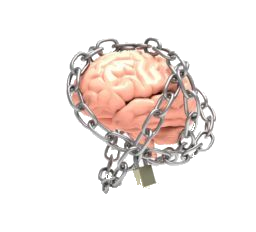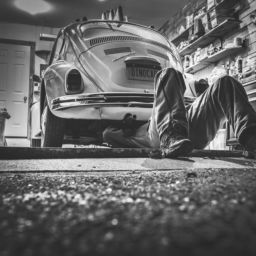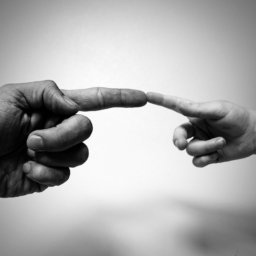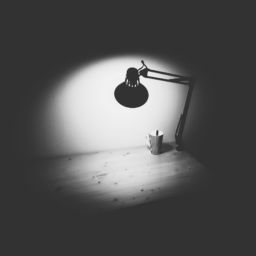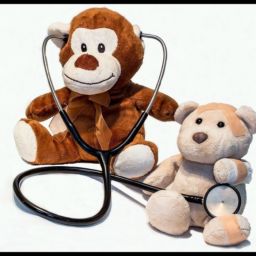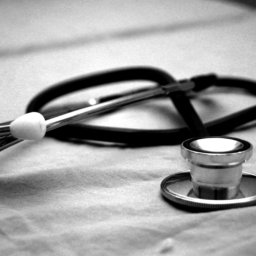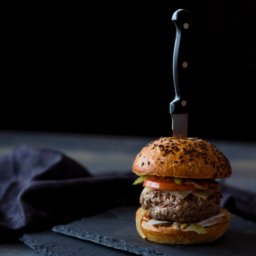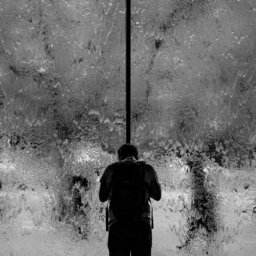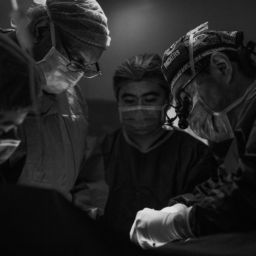The past year has forced many people to reflect on their lives. Families have grown stronger, relationships have strengthened, jobs have been let go and entire lives have become disrupted and displaced. For some, the past year has been a wake-up call, forcing them to confront the stark realities of their day-to-day lives and ask the question: what is the purpose of my life? Is it really just my job?
The last year has put the spotlight on one group in particular: healthcare workers. Doctors have become increasingly prevalent on social media, whether it be through #medtwitter or the rise of medical student youtubers showing off a ‘day in the life of a medical student,’ giving ‘unprecedented’ access to the life of a medic not just at work but also at home and inside their day-to-day personal lives. This recent explosion on social media is reflective of a long-standing issue within medicine; the identity of a doctor.
The identity of a doctor doesn’t stop the minute you leave the hospital. You remain a doctor once you get home, when you go out shopping with your family, when you watch TV or when you visit the beach on holiday. The identity consumes your life; it is a matter of pride for many, a guarantor of respect and status even in todays ‘meritocratic’ society. People listen to what you, a doctor, have to say, with such voices becoming particularly amplified by the pandemic.
This blurring of work and personal life is driven by the idea that medicine is a vocation. The career is sold as more than just a job; it is promoted as a desire to help people, to ‘save lives.’ Such assumptions make the idea of work-life boundaries irrelevant; surely as a doctor you are expected to work antisocial hours, to give up your Saturday night to be vomited over and to listen to someone cry their tears when you should be at home fast asleep? Leaving several hours after your shift has ended is a part of the job, surely? You chose this, didn’t you? Medicine is more than just a job, of course you can’t just leave at 5pm.
This concept of the self-sacrificing doctor is promoted not just by society but by the institution itself. As application numbers for speciality training rise there is a greater expectation for doctors to become involved in increasingly pointless activities outside of their day-to-day job in an attempt to boost their applications. ‘Extracurriculars’ are no longer ‘extra’ because they have become a compulsory part of the job; numerous audits and quality improvement projects are now required to progress in your training, with the caveat that such projects can only be projected outside of your 9-5 paid hours because who has time to complete these tasks during a theatre list or all-day clinic? And if you’re not willing to give up your free time, then you won’t continue up the training ladder until you’ve completed such mandatory tasks.
But we are also our own worst enemy. The recent introduction of exception reporting reveals this long-standing self-flagellation of the profession. Exception reporting is a system that allows doctors to report hours worked overtime for which they will be remunerated either through extra pay or time out in lieu. Yet many will refuse to use such systems out of discomfort or a sense that working outside of one’s paid hours is to be expected in such a profession. How dare we be paid for our time.
Yet this blurring of lines is expected not just by the institutions and by ourselves, but also by our own regulator, the GMC, who expect doctors to uphold the ideals of professionalism both in their work and in their personal lives so as not to put the profession into disrepute (whatever that means). Nothing is more important than a doctor acting like a doctor (or rather, the public’s expectations of a doctor) outside of work. These expectations place the doctor on a pedestal as the all-working, all-consuming, never-tiring, self-sacrificing individual who never moans, complains or goes off sick. It is dangerous that this is being perpetuated by the profession’s own regulatory body who should be aware of the humanity and vulnerability of clinicians and the need for wellbeing within the profession to ensure good patient care. So what if a doctor does need help? Do they suffer in silence, because to ask for help is to go against the public perception (that we perpetuate) that we are infallible?
The danger of this line of thinking was revealed during the pandemic when countless people lost their jobs and countless others came to the realisation that their job wasn’t everything. The realisation that the only thing that gets you up in the morning and drives you through the day is your work comes as a slap in the face for many of us. All that effort put into our work, those countless hours studying for exams and nights left unslept, not to mention the all-consuming identity of being a doctor driven by both the profession and society, only to realise that our work will not always give us the satisfaction we all crave, that a bad day at work or a patient complaint will deal a crushing blow to the only thing that is keeping us standing, is a difficult pill to swallow. This is the danger of being consumed by the identity of a doctor. It is all you ever will be. And it will never be enough.
So, remember. Being a doctor is a job. Just like being an accountant, or a solicitor. Yes, we are in a privileged position. Yes, people trust us. But that does not mean that we must sacrifice our own wellbeing to uphold the sanctity of the profession. Perhaps it is time that others reassessed their expectations of the medical profession and came to realise that we are human beings as well. That our emotional wellbeing is just as important as everyone else’s.
So remember to take off your white coat when you leave the hospital building. Remember to switch off your work phone and put it in the bottom of your bag. Remember what used to drive you in your childhood, what brought happiness to your face before you ever started this job. What do you love? What do you want to do?
Explore your interests. Widen your horizons. Get back to that instrument you stopped playing once you got into medical school. Write that book you always wanted to write. Explore the world. Meet new people. Fall in love. Do something outside of the dreary walls of the hospital and the small confines of this career.
